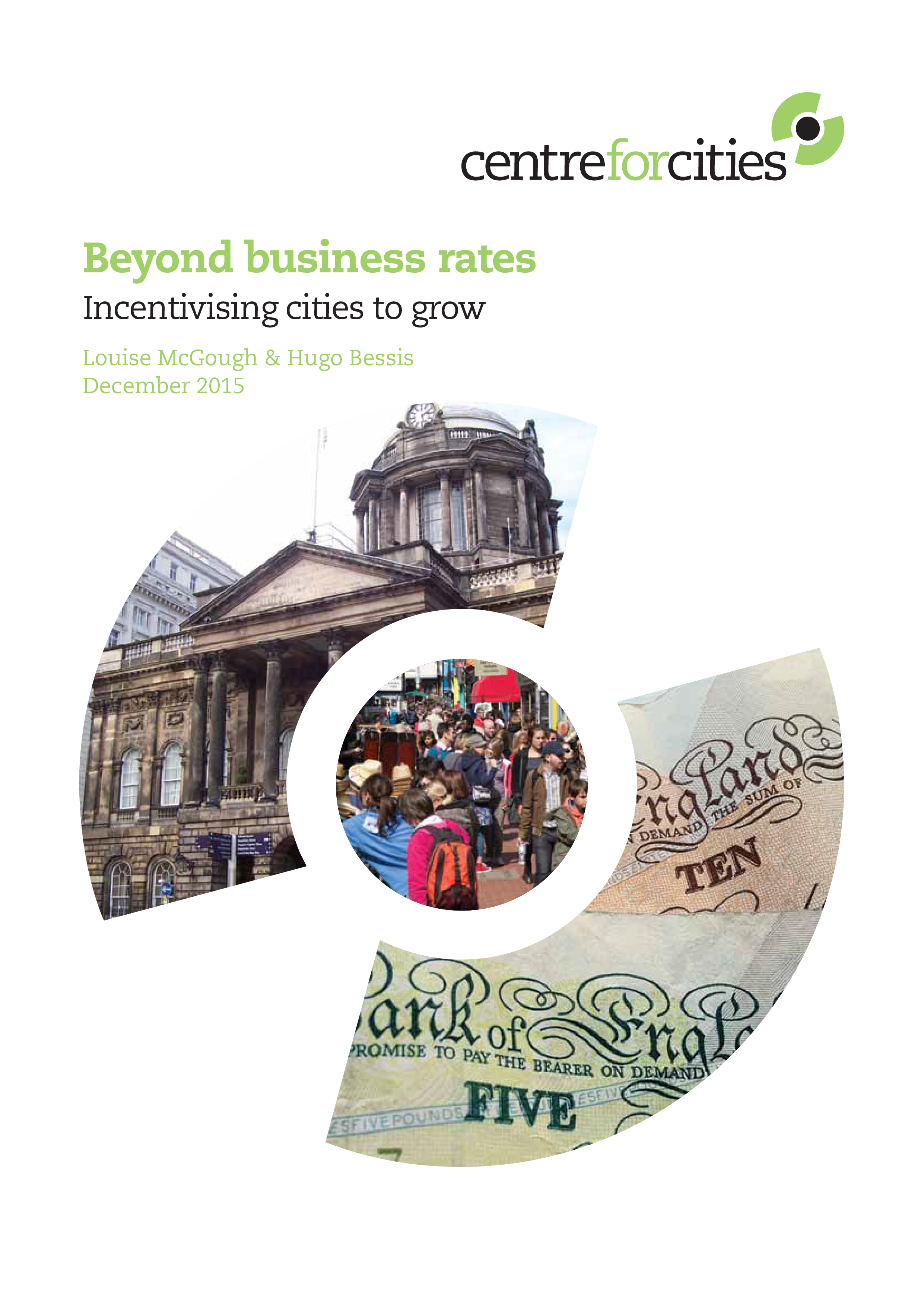06Conclusions and recommendations
The funding landscape for UK cities is changing, providing an opportunity to improve how the system works. The devolution of business rates is a step in the right direction, giving cities more control over a growing tax base and more incentives to support and attract new businesses to the area, as well as the expansion of existing firms. But there remains a risk that the devolution of business rates alone, particularly in its current form, will not provide a strong enough growth incentive to generate significant additional funding for UK cities.
Devolving additional control of land and property taxes, alongside new responsibilities, would create sharper incentives for cities to back investment in the things that can really make a difference to their local economy. This, in turn, will increase the size of the overall funding pot available to local government in the UK, meaning a proportion of those funds can be redistributed.
It would also bring big benefits for the national finances. If land and property taxes were devolved, resulting in behaviour by local government that increased revenues by 1 per cent above trend, this would generate an associated net additional £1.04 billion in income tax (or 1 per cent of the total income tax bill based on 2014-15 figures).
In order to provide the financial incentives that cities need, policymakers should:
- Address weaknesses within the current business rates system, and ensure growth incentives are prioritised when devolution takes place in 2020. Reforms should include: extending reset periods, encouraging pooling between authorities in city-regions, conducting more frequent valuations and replacing the fixed yield with a fixed rate. This would reduce volatility in the system and improve responsiveness to local economic conditions.
- Devolve control over the £10 billion generated in stamp duty alongside the full £23 billion in business rates to provide far stronger incentives for places to grow. Doing so would mitigate the risk of cities being dependent upon just one devolved tax stream and it could make a big difference locally by incentivising authorities to permit more development.
- Provide more freedoms regarding the setting of council tax to encourage revenue pooling between authorities. All local authorities need more freedom and flexibility over council tax revenues, including the ability to raise council tax without requiring a referendum, to spend the revenue generated as they see fit, and to introduce extra council tax bands as appropriate. This would encourage pooling within city-regions and reduce the need to compete on business rates.
- Ensure that the additional responsibilities passed down to cities alongside new tax streams are ones that local government can have a positive impact upon. For example, if both stamp duty and the housing benefit bill were devolved together, there would be both a greater incentive for supporting the delivery of new homes – due to increased stamp duty and council tax revenues, and the prospect of driving reductions in local expenditure on housing benefit.
The approach outlined in the report raise several issues that need futher consideration between now and 2019-20 when the new system of local government funding starts. These focus on how best to design a system that balances the need to both provide strong incentives for cities to prioritise growth, as well as provide a means to redistribute funds to cities less able to grow their economies.
- Redistribution of business rates and stamp duty. The design and implementation of top-ups and tariffs under the new devolved business rates system will determine the extent to which local control over business rates operates as a growth incentive in different cities. In addition to the top-ups and tariffs which redistribute income from one local authority to another, the current growth levy penalises those local authorities that ‘disproportionately’ benefit from growth, thus acting as a disincentive for high growth areas to grow the business rates base further.More work is required to compare the costs and benefits of a system that caps the proceeds of growth from successful cities for the purpose of equalisation with that of a system that redistributes a fixed share of a growing tax base from those areas to support struggling cities.
Given that London generated almost a third of all business rates in 2014-15, and 43 per cent of stamp duty – in comparison the combined revenues of the Northern Powerhouse city-regions accounted for 16 per cent of the national business rates tax take and 7 per cent of stamp duty revenues, there is an additional question of how to treat London within a national system.
- Pooling. Devolving additional tax streams responsibilities should increase the benefits from pooling across city-regions.Given these benefits, there is a question about whether a system of redistribution should be based on individual local authorities, or whether to organise the system based on city-regions and groupings of local authorities.
- Marrying extra responsibilities with extra funding. The national housing benefit bill is £22 billion, more than double the amount raised by stamp duty (£10 billion).If responsibility for the housing benefit bill was devolved to local government, the government would also need to devolve an additional £12 billion to cover the shortfall in the first instance. This raises the question of where this money would come from and whether it should be reduced over time to reflect the growing local tax base and the housing benefit bill, which is likely to fall as local authorities act accordingly by encouraging economic growth and building new homes.
